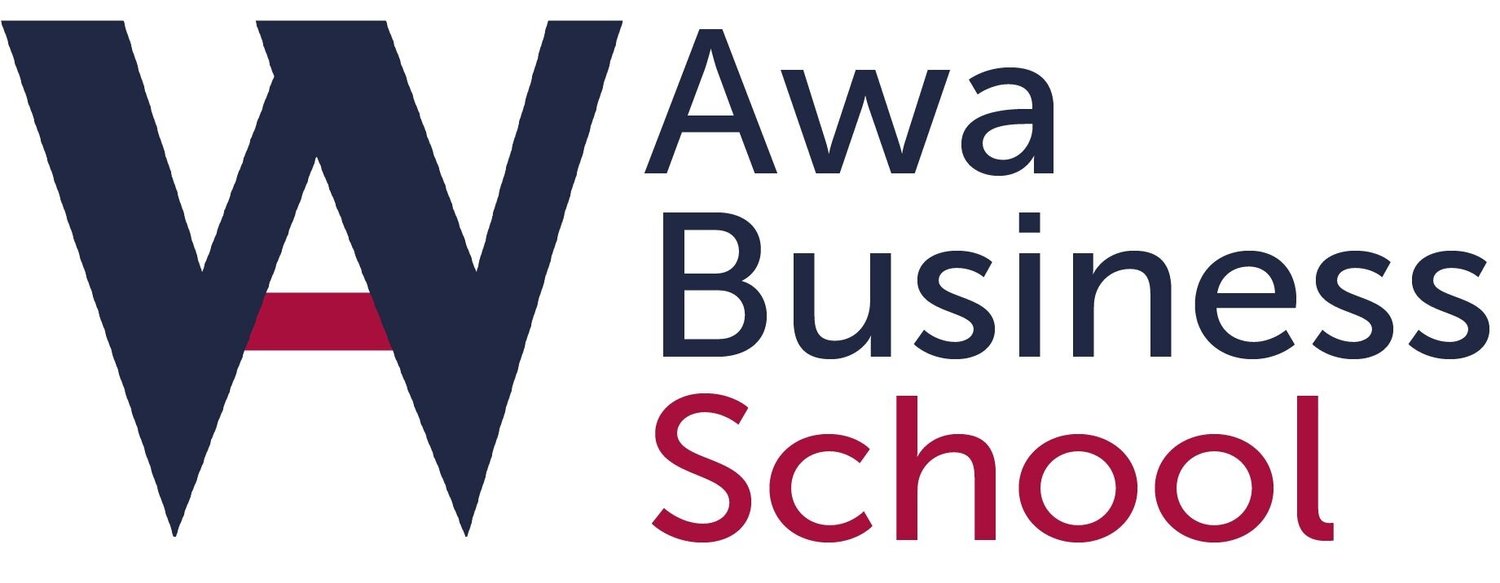Prevent Duty Policy
1. INTRODUCTION
1.1. As required under the Counter-Terrorism and Security Act 2015 (“the Act”), Awa Business School (“The School”) is expected to ‘have due regard to the need to prevent people from being drawn into terrorism’ (“the Prevent Duty”).
1.1 Section 29 states that it must have regard to guidance issued by the Home Secretary.
1.2. As required under the Counter-Terrorism and Security Act 2015 (“the Act”), Awa Business School (“The School”) is expected to ‘have due regard to the need to prevent people from being drawn into terrorism’ (“the Prevent Duty”).
1.3. The Prevent Policy applies to all staff, students and visitors of the School, and outlines how the School complies with the Prevent Duty.
2. RISK ASSESSMENT AND ACTION PLAN
2.1. The Prevent Duty requires the School to devise and maintain an assessment of the risk of its students being drawn into terrorism. The Risk Assessment is devised and maintained by the Head of Strategy, and will be reviewed at least annually by the Senior Executive Team
3. PASTORAL CARE
3.1. Pastoral care is available to students who are assigned a personal tutor.
4. ROLES AND RESPONSIBILITIES
4.1. The School expects staff members and students to be aware of its requirements under the Prevent Duty and ensure to comply with it. If any member of the School community is concerned about staff or student who might be at risk of being drawn into terrorism, it should:
4.1.1. Consider whether the individual’s views have become increasingly extreme regarding another section of society or government policy.
4.1.2. Consider whether the individual has been observed downloading, viewing or sharing extremist propaganda from the internet.
4.1.3. Consider whether the individual has become withdrawn and focused on one ideology.
4.1.4. Consider whether the individual has changed their appearance, their health may have suffered (including mental health) and they may have become isolated from family, friends, peers or social groups.
4.1.5. Be reported to a tutor or line manager.
4.1.5.1. Where a case is reported, staff should consider whether:
4.1.5.1.1. There is a risk and if the matter should be taken further, or
4.1.5.1.2. Contact the individual to confidentially discuss the matter, or
4.1.5.1.3. Contact the local Prevent Duty partners (Channel Police Practitioner or Local Authority adviser) for guidance and potential referral, or
4.1.5.1.4. Contact the Police. This option should only be considered after all other avenues have been considered and only in conjunction with the School Principal.
5. STAFF TRAINING
5.1. In addition to developing internal training and guidance, the Prevent Duty will be highlighted at staff induction and student information guidance provided during the welcome week. Other sources of training for staff include: http://course.ncalt.com/Channel_General_Awareness/01/index.html
5.2. Staff training is carried out regularly for all relevant staff so they can recognise potential signs of radicalisation and those who may be vulnerable of being drawn into terrorism. This includes an explanation of how to sensitively and appropriately handle concerns that may emerge.
6. EXTERNAL EVENTS AND SPEAKERS
6.1. Section 6 applies to all events held on-site and off-site that utilise any School resources or are in any way branded or affiliated to the School.
6.2. Staff and students who wish to invite an external speak must consider Section 6 of this policy before advertising an event or inviting a speaker.
6.2.1. Under the Education (No. 2) Act 1986, higher education providers have a duty to secure freedom of speech for its visiting speakers, its employees, and students. To comply with the Prevent Duty, the School will not encourage:
6.2.1.1. Terrorism in any way or provide a platform for any proscribed terrorist organisation;
6.2.1.2. Discrimination of any kind against any person or group on the grounds of their sex, race, nationality, ethnicity, disability, religious or other similar belief, sexual orientation or age.
6.2.1.3. Breach of its policies and expects speakers to comply with all relevant laws.
7. SECURITY SENSITIVE RESEARCH
7.1. The School has no current plan or staff and/or student engaged in security-sensitive research. Where this is proposed, then an ethical review would be required before approval via the Academic Board.
8. INFORMATION COMMUNICATION TECHNOLOGY
8.1. All staff and students must ensure that all ICT systems are not used in any way that promotes, facilitates or supports terrorism.
8.2. The School’s ICT system must not be used to access, create, download, store or distribute any unlawful material. Any such material should be made inaccessible through appropriate filtering. Failure to comply may result in disciplinary action under the School’s code of conduct.
9. DISCIPLINARY PROCEDURES
9.1. The School has disciplinary procedures for alleged misconduct of staff and students and has policies in place as part of its line management infrastructure to deal with alleged staff misconduct.
10. ACADEMIC PARTNERSHIPS
10.1. Due diligence will be conducted on potential partners to affirm that they would comply with the School’s principles and its Prevent Duty obligations.
11. INFORMATION SHARING
11.1. Information regarding staff or student may be shared both internally or externally. Information may be shared internally with relevant members of staff, and externally with local Prevent Duty partners (Channel Police Practitioner or Local Authority adviser). This is in accordance with the School’s Data Protection Policy.
